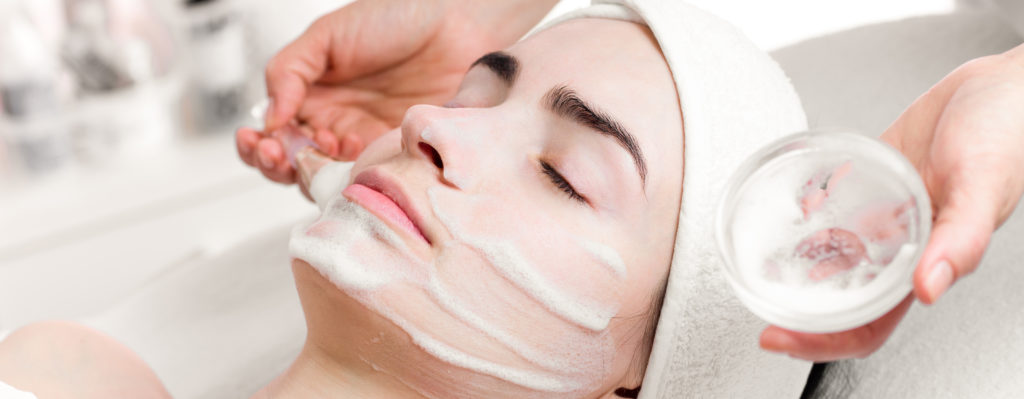
Skin texture is completely normal, but many people want to smooth their skin and eliminate the risk of skin problems. Removing dead skin and preventing skin damage can all help improve textured skin. Everyone’s skin is different, so not all products and remedies will work the same, but using natural products and eating the right foods can go a long way Below are some treatments that are recommended by estheticians and dermatologists alike.
1- Use An Exfoliating Cleanser
Exfoliating is essential for removing dead skin cells and helping your skin grow new cells that will help give you smoother skin. Use an exfoliation brush in gentle circles to exfoliate your face and neck.
Light peels, chemical peels, or other facials from a licensed esthetician can also help remove clogged pores and dead skin. For those with sensitive skin, consult with your dermatologist or esthetician about what products are best for you to use.
2- Choose A Good Moisturizer, For Your Face And Body
Using a moisturizer that is best for your skin type will help make your skin feel younger and more buoyant. Search for a moisturizer with calming ingredients like niacinamide. If you have acne-prone skin, try to avoid an oil-based moisturizer as this can cause more breakouts.
Dermatologists also emphasize the importance of moisturizing your body. Uneven skin texture can occur on multiple areas of the body such as arms, elbows, back, legs, and more. Moisturizing these parts of your body will help keep your skin looking and feeling youthful. Directly after exfoliating your body, you should be applying moisturizer.
3- Don’t Neglect Wearing Sunscreen
Most of us have been told for our whole lives that applying sunscreen is important, but what role does sunscreen play when it comes to textured skin? Over time, neglecting proper SPF can cause uneven skin tone, textured skin, and a higher risk of skin cancer. You should be wearing SPF protection every day, even if it is cloudy or rainy.
Some sunscreens contain natural skin-repairing enzymes that can repair past sun damage while protecting your skin from UV rays. Use a non-toxic and hydrating sunscreen to help protect even deeper layers of your skin and limit bumps.
4- Improve Your Diet

Foods that contain antioxidants are great for your skin. Leafy greens, yellow and orange vegetables, and even fish will provide protection to your skin. Eating these foods and drinking water will help keep nutrients and moisture in the skin, which are essential for keeping it tight even into older age.
Probiotics have also been found to improve certain skin conditions like eczema and acne. Even taking probiotics in conjunction with a healthy diet can help you see benefits for your skin.
5- Eliminate Skin Irritants
The environment around us, soaps, and even our clothes can be causes of skin irritation. Some factors can contribute to changing skin texture and skin tone without you even realizing it. Harsh skin products or chemicals can cause you to lose layers of skin and make your skin texture feel uneven.
Pollution and low air quality can also impact our skin. It can be hard to avoid this when you have to go to work or live in a place with high pollution. This is why it is important to cleanse your face twice a day and use a barrier protection moisturizer.
6- Use A Vitamin C Serum
Antioxidants found in Vitamin C will help bring new life back into your skin. A Vitamin C serum will provide you with anti-aging benefits, limit age spots, and help textured skin. Implement your serum after you cleanse your skin and before moisturizing. There are also other products like sunscreen, foundation, and moisturizer that include Vitamin C as an ingredient. Using these will save you money and give your skin multiple benefits at once.
7- Stay Hydrated
Drinking plenty of water will make you a healthier person. Since our bodies are made mostly of water, replenishing our levels each day improves our cognitive function, and our skin texture, and regulates hunger. Water helps to improve the elasticity of your skin. Elasticity helps your skin to bounce back when it is scratched and prevents drooping at a premature age.

Drinking enough water each day will limit skin itchiness and rough texture in all areas of the body.
If your skin is textured or dry and none of the at-home remedies seem to help, consult with your doctor or an esthetician. Skin care experts can help recommend products that won’t irritate your skin and can help bring some rejuvenation to the skin.
